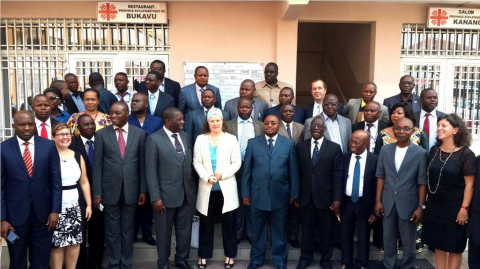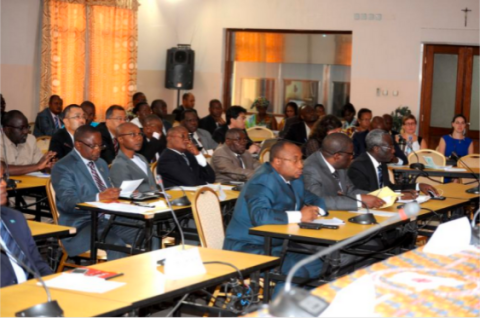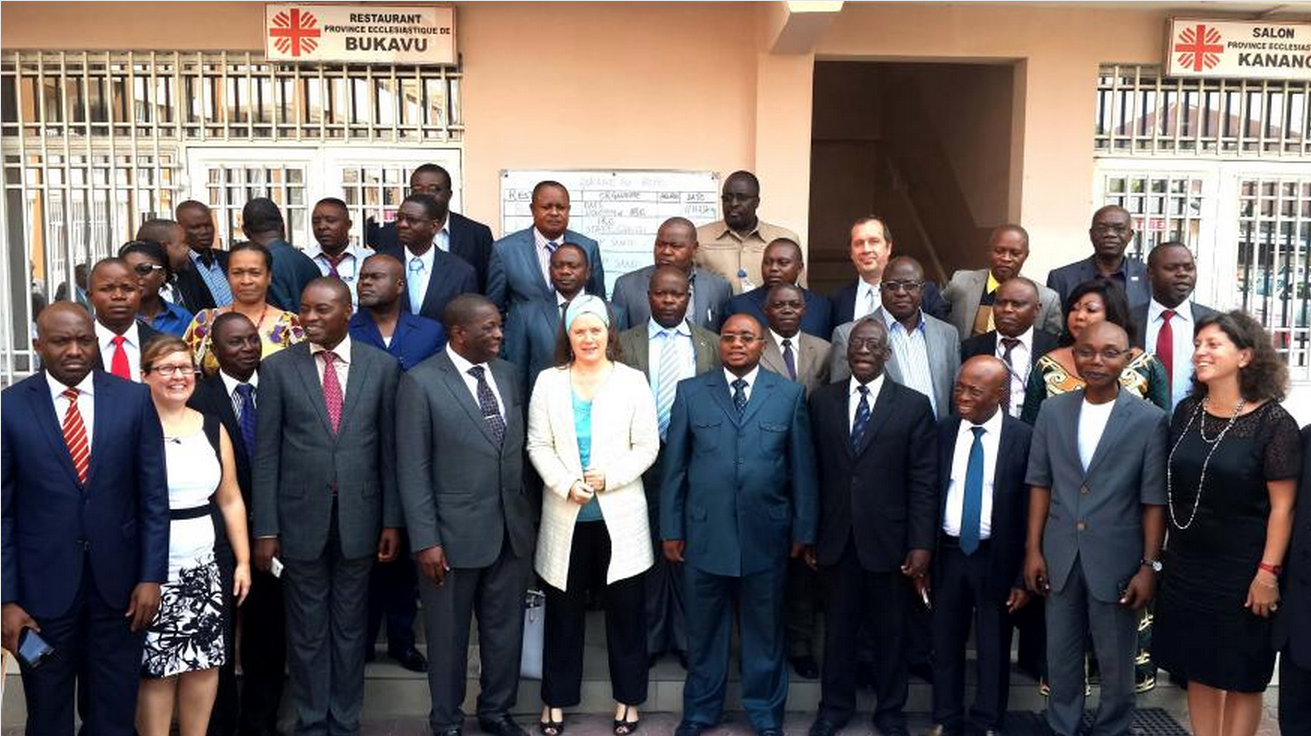
The reform process of the Democratic Republic of Congo (DRC) health sector reached an important milestone on Friday, December 12, 2014 with the adoption of resolutions and recommendations from the General Assembly of the National Steering Committee of the Health Sector (CNP-SS). This meeting was chaired by Dr. Felix Kabange Numbi, Minister of Health, , with the presenceof Dr. Joseph Caboré the WHO Representative in the DRC, Sylvie Whip, the Coordinator of the Inter-Donor Health Group (GIBS), public health and public service general secretaries as well as the Directors of central services at the Ministry of Public Health.
Their main objective was to contribute to the effective implementation of decentralization and of a reform in the health sector at the provincial or intermediate levels. This reform comes in response to the National Health System Strengthening Strategy (SRSS), which foresees the establishment of Provincial Health Divisions (DPS) based on the configuration of the new provinces, under the Constitution of the DRC.
State interventions in the health sector being crucial to successfully put in place a policy and a credible regulatory framework, several innovations have been incorporated in the restructuring of the CNP-SS. For example, it is worth mentioning the establishment of a General Assembly, the establishment of a permanent technical secretariat and of a co-chair of the Technical Commissions by the GIBS.
The Minister of Public Health, who welcomed the conclusions and resolutions of this meeting, said that “the process of reform and modernization of the administration in the public health sector in DRC are progressing in an irreversible manner with the participation of all and the support of our partners.” At the same time, he called for a single and unified coordination, by revitalizing the essential functionality of the CNP -SS as the sole health sector coordination body and thus improving the effectiveness of sector interventions.[SK1] ,
The World Health Organization (WHO ) will ally with GBIS partners to support the DRC in accelerating the implementation of a number of guiding principles discussed and adopted at the meeting. According to Dr. Joseph Caboré this involves, among other things, “ensuring the gradual implementation of a reform process that remains dynamic through continuous policy dialogue and consensus building”.
The WHO Representative also stressed the importance of establishing effective mechanisms to bolster the links between the two levels of health administration – national and provincial – to reduce the risk of fragmentation in the process of decentralization. For him, “there is need for the central level to work towards ensuring greater health equity between provinces.” The concept of equity, according to WHO, must include access to essential health services for financially or geographically socially disadvantaged groups.
To ensure the smooth functioning of the health system in the DRC throughout its national territory, it is imperative, as part of a political dialogue in the health sector that the 26 Provincial Health Divide (DPS) are operational to support the healthy development of health zones and improve the quality of healthcare delivery for the benefit of the population.
In this context, “the sustainability of funding for these new structures – Provincial Divisions (DPS) and Provincial Health Inspections (IPS) – is necessary for this reform to be consolidated over the years. Substantive work has already begun for the application of a single contract with a performance framework related to DPS and IPS [GG2] [SK3] missions as an approach that will help streamline the rational use of resources at all levels. This should reduce fragmentation via the harmonization of allocations for the sake of complementarity and synergy of partner support.
Sylvie Whip, GIBS Coordinator, reaffirmed the commitment of development partners to joining efforts with publichealth authorities in order to make the health system more efficient. This will require the mobilization of financial resources in the budgets at national and provincial levels. Further efforts are needed on the coordination, planning and preparation of meetings at the various levels of the Ministry of Health and its partners. This is in order “to avoid being taken by surprise when organizing major activities following conflicting agendas, ” she added.
At this point in time, strengthening public-private partnerships is crucial to ensure that the gains of the health sector reform can be sustained until the 26 provinces foreseen in the constitution of the DRC are effectively in place and functional.

